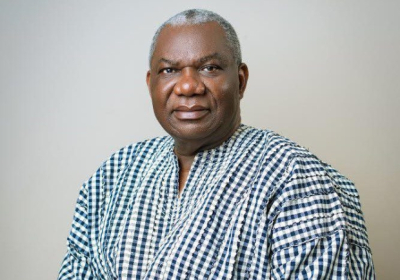Seven vs. Nine: How Regional Support Could Shape Ghana’s Presidential Race: Professor Smart Sarpong
.jpg)
Professor Smart Sarpong, a prominent Senior Researcher at the Kumasi Technical University, has unveiled the results of his latest survey on the upcoming presidential elections in Ghana. The survey focuses on the competition between the flagbearers of the two dominant political parties: the New Patriotic Party (NPP), represented by Dr. Mahamudu Bawumia, and the National Democratic Congress (NDC), led by former President John Dramani Mahama.
During a lively panel discussion on Peace FM's renowned Friday morning show, *Kokrokoo*, Prof. Sarpong shared insights into the current regional voting dynamics. His findings sparked significant interest and debate, particularly as he challenged widely circulated claims from other research institutions regarding the electoral outlook.
Debunking the 12-Region Lead Claim
Prof. Sarpong specifically took issue with assertions that former President John Mahama was leading in 12 out of Ghana’s 16 regions, as reported by certain pollsters. He dismissed these projections, stating emphatically that such conclusions lack empirical rigor. The professor emphasized the importance of a more nuanced approach to interpreting survey data, cautioning researchers against making premature generalizations based solely on raw sample statistics.
“Conclusions are not drawn based on samples. Learn the next level; the next level is to subject the data to what we call inferential statistics,” Prof. Sarpong advised. He called on his colleagues in academia and the research community to exercise caution and adopt scientifically sound methodologies before publishing their findings.
Prove Me Wrong" Survey Results
Dubbed the *"Prove Me Wrong"* survey, Prof. Sarpong’s research sheds light on a closer contest than some have predicted. According to his findings, Mahama is currently in the lead in nine regions, while Dr. Bawumia is ahead in seven. He detailed the distribution of regional support, noting that Bawumia has a stronghold in regions such as Ashanti, Western, Bono, Ahafo, Central, Eastern, and North East. Conversely, Mahama commands significant support in the remaining regions.
Prof. Sarpong explained that the regional distribution of votes would have a pivotal influence in influencing the result of the December 7, 2024, election. He pointed out that while Mahama has a numerical advantage regarding areas or regions, the significance of voting turnout and the margins of victory in each region would ultimately decide the winner.
It is evident that these seven regions are paving the way for the NPP, and the nine regions have shown a lead for the NDC,” he noted. Based on information from the 2024 election, the victor science and data, will depend on the extent of gains the NPP can make in their seven leading regions and the gains the NDC can secure in their nine.”
The Road to December 7
As the election date draws closer, the insights provided by Prof. Sarpong’s research offer valuable perspectives on the dynamics shaping Ghana’s political landscape. Both the NPP and NDC now face the challenge of consolidating their support in their respective strongholds while making inroads into regions currently leaning toward their opponent.
The race, according to Prof. Sarpong, is still wide open. His findings serve as a call to action for political actors to focus on data-driven strategies to maximize their chances of success in what promises to be a tightly contested election.
This expanded version provides more context, analysis, and emphasis on the implications of the research findings. December 7, 2024, election. He pointed out that while Mahama has a numerical advantage in terms of regions, the weight of voter turnout and the margins of victory in each region would ultimately decide the winner.
It is evident that these seven areas are paving the way for the NPP, and the nine regions have shown a lead for the NDC,” he noted"According to data from the 2024 election, the victor will depend on the extent of gains the NPP can make in their seven leading regions and the gains the NDC can secure in their nine.”
A Call for Data-Driven Analysis
Prof. Sarpong’s remarks underscore the importance of basing political predictions on robust data and thorough analysis rather than speculative or superficial interpretations. He highlighted the significance of voter mobilization efforts by both parties, noting that regional leads alone do not guarantee victory unless backed by significant voter turnout and strategic campaigning.
His survey findings have ignited discussions among political analysts, party strategists, and the general public. Many see this as a reminder that the electoral map remains fluid, with potential shifts depending on how the campaigns unfold in the coming months.







